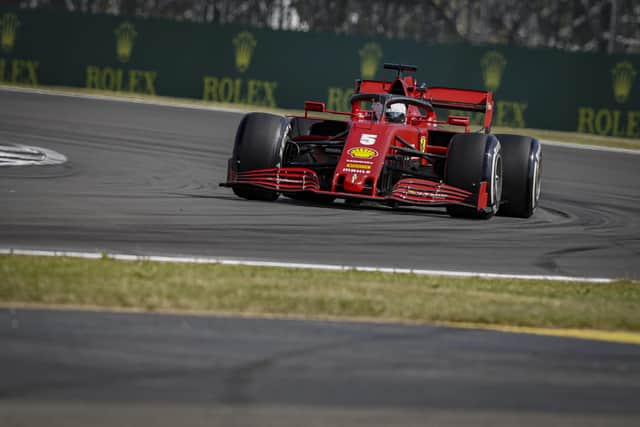The lessons we can all learn from elite sports people - John McLachlan
When researching our new book, ‘Rest, Practise, Perform’ we found three essential lessons all organisations can benefit from.
We looked at three elite sports: Football, a team sport where everyone on the pitch is performing at the same time; Formula One, also a team sport but where teams perform at different times; Tennis, predominantly an individual sport. There are parallels to be found in business: people performing together for a key event; the different teams involved in product development; a sales pitch relying on one person’s performance.
Advertisement
Hide AdAdvertisement
Hide AdWe found that strategies within elite sports use a combination of well-designed rest and a lot of the right kind of practice, all leading up to an intense performance window to produce sustainable and successful results.


Many organisations mistakenly equate constant activity with productivity. However, elite sports teach us the significance of delineating a clear ‘performance window’ – a concentrated timeframe where peak performance is imperative, akin to a race or match. Rather than perpetually burning the midnight oil, businesses should pinpoint their critical moments, focusing resources and energy where they truly matter. Whether it's a pivotal meeting or a project deadline, channelling efforts into defined performance windows minimises burnout and maximises impact.
In many workplaces there is a widely held view that rest ‘is what holidays are for’. Elite sports have a different, and useful, perspective on rest. Instead of stopping completely and quickly losing fitness, they focus on resting that which has been lost through the performance window. That’s why so many build in different types of activities that give them a break from intense competition. What they really need is a break from the pressure of competition, rather than pure exhaustion. Many find this in sports that they don’t compete in but do just for fun.
Organisations can learn a lot from this and build it into their rhythm. Just like sports people, employees need to rest what it is they use up in the performance window. This may be less physical, but no less important. For example, HR professionals may need a break from intense emotional situations, project managers may experience rest by focusing on one thing rather than 20 or creative designers may get rest by doing something practical rather than creative.
Advertisement
Hide AdAdvertisement
Hide AdElite athletes devote extensive time honing their skills, embracing comprehensive training regimens to excel during their performance windows.
Where elite sports employ strength training and mental coaching, businesses should invest in equipping their teams with the tools needed for peak performance. These could take the form of negotiation skills, or conflict resolution skills. Your organisation may not need every business skill all of the time, but the key is to identify the specific traits or skills that will enhance performance in your particular performance windows.
In essence, the world of elite sports serves as a rich repository of strategies for excellence. By embracing the lessons of well-defined performance windows, strategic rest, and deliberate practice, organisations can triumph.
John McLachlan is co-author of ‘Rest, Practise, Perform.’
Comment Guidelines
National World encourages reader discussion on our stories. User feedback, insights and back-and-forth exchanges add a rich layer of context to reporting. Please review our Community Guidelines before commenting.